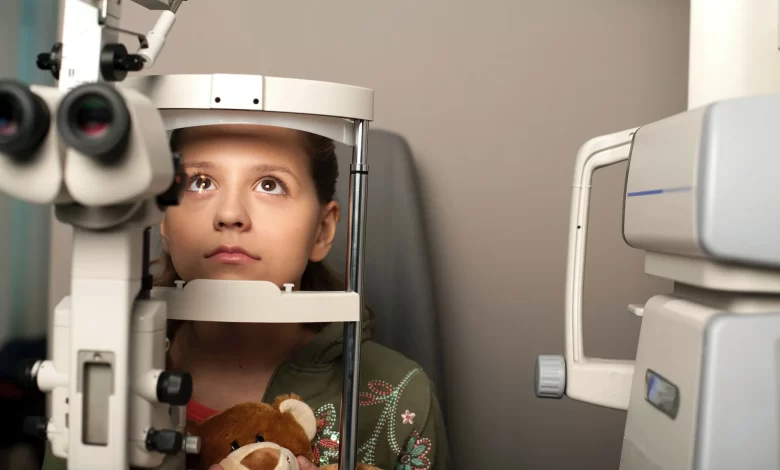Essential Tips for Maintaining Good Eye Health

Our eyes are one of the most vital organs in our body, allowing us to experience the world in vivid detail. Yet, many people take their eye health for granted until problems arise. Whether you’re spending long hours in front of a screen, working in hazardous environments, or simply navigating daily life, prioritizing eye care is essential for long-term vision health.
By following a few simple habits and making mindful choices, you can protect your eyesight and reduce the risk of vision-related issues. Here are some essential tips for maintaining good eye health.
1. Protect Your Eyes from Digital Strain
In today’s digital world, screens are everywhere—from smartphones and tablets to computers and televisions. Excessive screen time can lead to digital eye strain, causing symptoms like dry eyes, headaches, and blurred vision.
How to Reduce Digital Eye Strain:
- Follow the 20-20-20 Rule: Every 20 minutes, look at something 20 feet away for at least 20 seconds.
- Use Blue Light Filters: Blue light from screens can contribute to eye strain and disrupt sleep patterns. Consider using blue light filtering glasses or activating night mode on your devices.
- Blink More Often: Staring at screens reduces your blink rate, leading to dryness and discomfort. Make a conscious effort to blink regularly.
If you spend long hours working on a computer, investing in an ergonomic screen setup and proper lighting can also help alleviate strain.
2. Eat a Vision-Boosting Diet
A nutrient-rich diet plays a significant role in maintaining eye health. Certain vitamins and minerals can help protect your eyes from age-related conditions like macular degeneration and cataracts.
Best Foods for Eye Health:
- Leafy Greens (spinach, kale) – Rich in lutein and zeaxanthin, antioxidants that protect against UV damage.
- Carrots & Sweet Potatoes – Packed with beta-carotene, which supports good night vision.
- Fatty Fish (salmon, tuna) – High in omega-3 fatty acids, which help reduce dry eye symptoms.
- Nuts & Seeds – Contain vitamin E, essential for preventing oxidative stress in the eyes.
Incorporating these foods into your diet can significantly improve eye health over time.
3. Wear Proper Eye Protection
One of the most overlooked aspects of eye health is protecting your eyes from potential hazards. Whether you work in a high-risk industry, play sports, or engage in outdoor activities, wearing the right protective eyewear can prevent injuries and long-term damage.
- For Workplace Safety: If you work in construction, manufacturing, or a laboratory setting, wearing wrap-around prescription safety glasses is crucial. These glasses provide complete coverage, shielding your eyes from debris, chemicals, and impact-related injuries.
- For Outdoor Protection: UV exposure can accelerate cataract development and cause long-term vision issues. Always wear 100% UV-blocking sunglasses when spending time outdoors.
- For Sports & Activities: Athletes should wear protective sports glasses to prevent injuries, particularly in high-impact sports like basketball, baseball, and racquetball.
Taking preventive measures now can save your eyesight in the long run, reducing the risk of injuries that could lead to permanent damage.
4. Get Regular Eye Exams
Routine eye check-ups are essential for detecting early signs of vision problems. Many serious eye conditions, such as glaucoma and macular degeneration, develop slowly and don’t show symptoms until significant damage has occurred.
How Often Should You Get an Eye Exam?
- Children & Teens: Every 1-2 years, depending on vision needs.
- Adults Under 40: Every 2 years, unless you have existing eye conditions.
- Adults Over 40: Every year, as age-related eye diseases become more common.
- If You Have Diabetes or Other Risk Factors: Every 6-12 months to monitor potential complications.
Regular check-ups can catch vision problems early, ensuring timely treatment and long-term eye health.
5. Give Your Eyes a Break
Whether you’re reading, driving, or working, your eyes need regular breaks to reduce fatigue and strain.
Tips for Reducing Eye Fatigue:
- Take Frequent Breaks: If you’re focusing on something for an extended period, step away every hour to let your eyes relax.
- Practice Eye Exercises: Simple eye movements—such as looking left to right or focusing on near and far objects—can help keep eye muscles flexible.
- Stay Hydrated: Dry eyes are often caused by dehydration. Drink plenty of water throughout the day to keep your eyes moist and comfortable.
Listening to your body and giving your eyes time to rest helps preserve long-term vision clarity.
Final Thoughts
Taking care of your eyes should be a priority at every stage of life. Simple habits—such as reducing screen time, eating a vision-friendly diet, wearing protective eyewear, and scheduling regular eye exams—can go a long way in preserving your eyesight.
For those who work in high-risk environments, investing in wrap-around prescription safety glasses is a smart move. These glasses provide essential protection against workplace hazards, helping you maintain clear vision and avoid injury.
By making small, intentional changes to your daily routine, you can keep your eyes healthy and your vision sharp for years to come. Take care of your eyes—they’re the only pair you’ve got!




